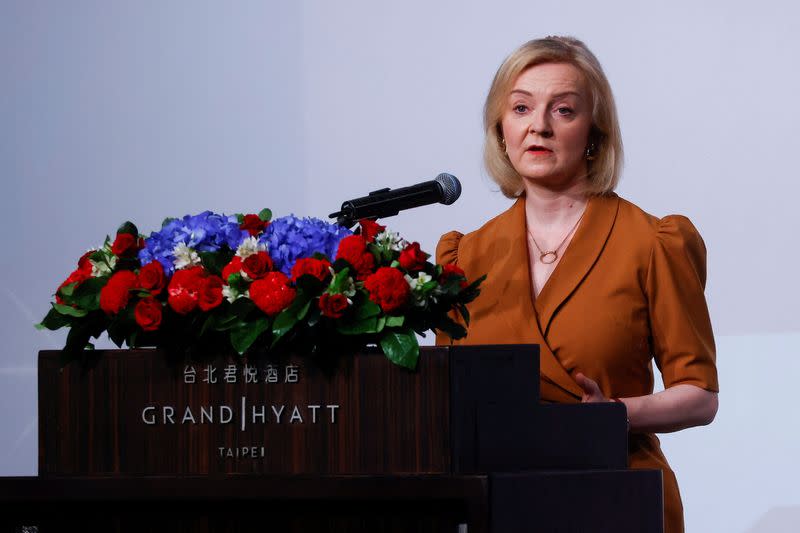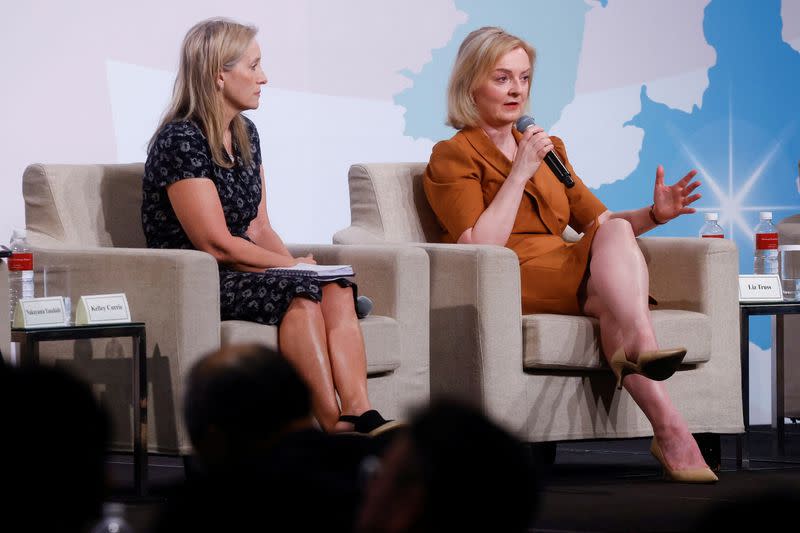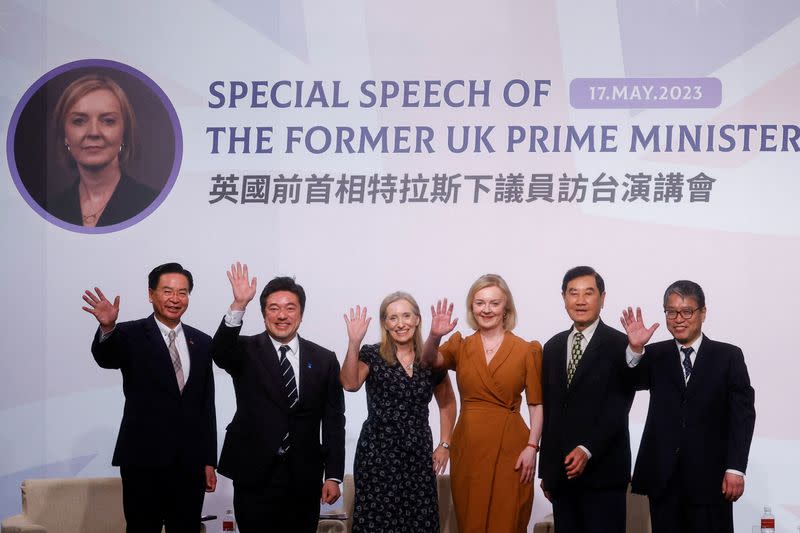In Taiwan, former UK PM Truss warns against appeasing China
TAIPEI (Reuters) -Former British prime minister Liz Truss said in Taiwan on Wednesday the West must avoid appeasing China and show unwavering support for the democratically governed island, in a speech that risks further damaging Britain's ties with Beijing.
Truss is the most well-known British politician to visit Taiwan since former prime minister Margaret Thatcher in the 1990s, and her trip comes at a time when relations between Britain and China are the worst in decades.
She represents a hawkish wing of the governing Conservative Party that opposes the British government's approach to China, which involves seeking to engage in areas such as trade and climate change while trying to limit national security threats.
In contrast to French President Emmanuel Macron's attempts to distance Europe from any involvement in a conflict over Taiwan, Truss said it would be "completely irresponsible" for European nations to argue that the island is too far away or not important.
Beijing claims democratically governed Taiwan as its own and has not renounced the use of force to ensure eventual unification despite strong objections by Taipei, which says China has never ruled the island and thus its claims are void.
Beijing has previously condemned visits by British lawmakers to Taiwan for what it calls interference in China's internal affairs.
"We have to do all we can to support free democracies like Taiwan in the face of aggression from a Chinese regime whose record we already know," Truss said in a speech at Taipei-based think tank, the Prospect Foundation.
Truss said China was trying to use its global economic clout to "gain dominance" and undertake "the biggest military build-up in peacetime history." However, she said, many in the West chose to appease China because they don't want another Cold War.
"The only choice we have is: do we appease and accommodate that strategy or do we take action now to prevent conflict."
Truss also met Taiwan's prime minister Chen Chien-jen on Wednesday in a meeting broadcast live online, during which Chen described her visit as "historically significant".
After being forced out of office in a record 49 days last October over unfunded tax cuts that buffeted the financial markets, Truss has made speeches aimed at rebuilding her political reputation and adding pressure on her successor, Rishi Sunak, to take a stronger stance on a number of issues.
A spokesperson for the Chinese Embassy in London criticised her visit, calling it a "dangerous political show which will do nothing but harm to the United Kingdom".
In the clearest attempt to explain Britain's approach to China under Sunak, the foreign minister James Cleverly said last month it would be a mistake to isolate Beijing and that engagement is needed in areas such as climate change.
"There are still too many in the West who are trying to cling on to the idea that we can somehow cooperate with China on issues like climate change," Truss said in the speech. "But without freedom and democracy, there is nothing else."
(Writing by Andrew MacAskill; additional reporting by Yimou Lee; editing by Lisa Shumaker, Mark Heinrich and Raju Gopalakrishnan)




